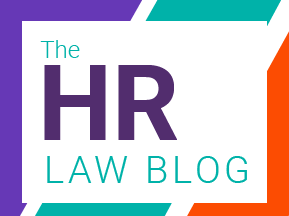
Welcome to the backstitch HR law blog, a new series where we will provide the latest updates on upcoming and recently in-effect legislation. Our blog series will provide short snippets of State, Federal, and Global changes in HR and employment law, so your organization can continue to stay up to date in the legal world.
For the month of June 2019, several new pieces of State legislation follow in new trends developing within employment law. Make sure you keep up with these changes to avoid fines and lost productivity!
Salary Ban
Both Kansas City, Missouri and Suffolk County, New York follow national trends to bar employers from asking about past salaries of potential job prospects. In Kansas City, this change was passed on May 23 and will take effect on October 31, 2019. In New York, the act goes into effect much sooner, on June 30, 2019. The employer is barred from inquiring about an applicant's salary, relying on salary history in deciding whether to extend an offer, or retaliating against an applicant for not disclosing salary history. However, these don't apply to voluntary disclosures of salary information by applicants.
Non-Compete Prohibition
Other trends that are taking place in the country are non-compete laws, which restrict employees from working at a similar company upon termination. On May 9, 2019, Washington state signed a non-compete law that bans non-compete agreements for employees who earn less than $100,000 annually or independent contractors that are paid less than $250,000. This bill goes into effect January 1, 2020. In Maryland, a similar but more lenient bill was passed and enacted on May 25, 2019 called Senate Bill 328. In this bill, employers cannot enter into non competition agreements with employees who earn $15 or less per hour or $31,200 or less annually. These laws will continue to spread across the country and employers must be aware and ready to adapt to the new prohibitions.
New Mexico
The state of New Mexico recently passed multiple laws regarding employment. All laws went into effect on June 14, 2019. While a few of the laws merely closed some exemptions that prior bills had allowed, a few followed in the footsteps of other trends in the overall country as the US continues to lower its unemployment rate.
Governor Michelle Lujan Grisham signed a bill that extended wage protection to domestic workers. Senate Bill 85 closed an exemption where employers of domestic service workers didn't need to adhere to the state's minimum wage and overtime laws if they worked in private homes. Now, every employer of domestic service workers must pay them in accordance with the state laws for wages.
Another law is the "Criminal Offender Employment Act" known as Senate Bill 96. New Mexico is the latest state to follow a general trend throughout the country that seeks to increase employment for individuals with criminal records.This bill doesn't prohibit the employer from asking about the person's background at all. Instead, it prohibits asking the worker during the job application process while still allowing the employer to ask about employee background during the interview.
Trending across the country, states are transitioning to allow leave to be used for reasons other than being sick. In New Mexico, the state passed a bill that allows workers to use their sick leave on caring for family members. Senate Bill 123 does not require employers to offer paid sick leave or more paid time off but instead prohibits retaliation against employees who request or use caregiver sick leave.
As society becomes more accepting of LGBTQ individuals, our country also creates more laws to protect these people from discrimination. Senate Bill 227 serves to close up prior exemptions for small businesses against unlawful discrimination. Previously businesses with 14 or fewer employees were exempt from this part of the Human Rights Act.
While many more laws and changes are in the works as well, these are some that have been following recent labor employment trends that will likely continue to expand. By being on top of these and adhering to these guidelines proactively, your focus can shift away from worrying about the next big HR change.

